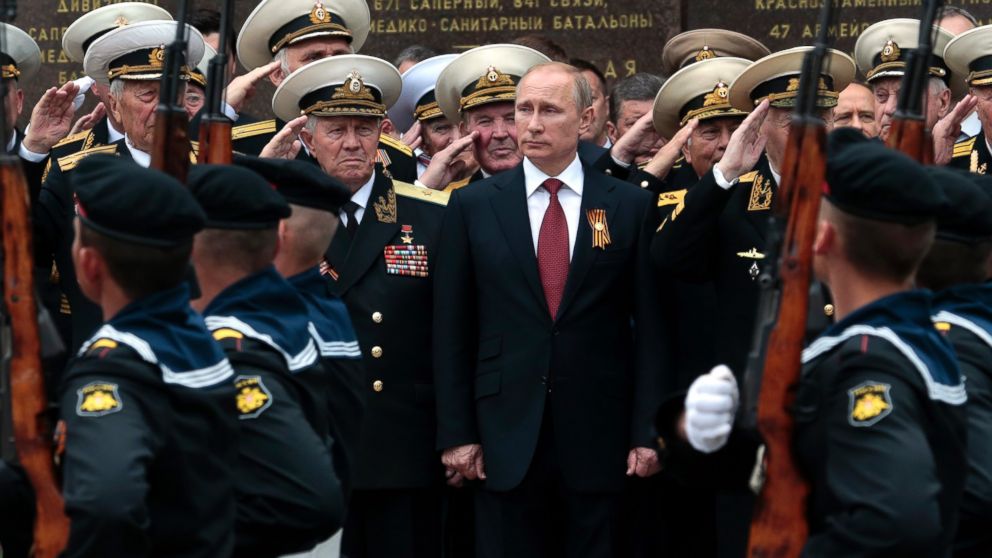Effects of sanctions 8 months later.

As Secretary of State John Kerry talks with European allies about imposing further sanctions on Russia, the country's economists forecast a recession amid a perfect economic storm.
Since March, the U.S. and European Union imposed various sanctions over apparent support of separatists in eastern Ukraine and the annexation of Crimea. The sanctions have impacted Russia largely through its financial system, said Barry Bosworth, The Brookings Institution senior fellow.
Here are some of the other effects of the sanctions and Russia's economic slide:
1. A contracting Russian economy
Russia's Economic Ministry warned yesterday that its gross domestic product will shrink by 0.8 percent next year.
While the ministry expects Western sanctions to be intact by 2016, the bigger short-run impact is from the oil price collapse, Bosworth said. Low energy prices are a destabilizing factor for Russia and other emerging economies that depend disproportionately on commodities, said Kathleen Smith, IPO ETF manager Renaissance Capital principal.
The declining ruble is another factor. As the currency depreciates, imports become more expensive and inflation rises, notes Amit Khandelwal, Columbia Business School professor.
2. A hit on Europe
European foreign direct investment is crucial to Russia for the money and technical know-how, Bosworth said. But the sanctions have no economic effect on the U.S., because we don't have significant trade with Russia.
"They are, however, a bigger issue for Europe because of extensive trade relationships—energy, agriculture, and a wide range of consumer goods that Europe exports to Russia," Bosworth said.
In Germany, exports to Russia were 3.4 percent of 2013 total exports, so sanctions could have larger effects on both economies, said Khandelwal. But that means that the E.U. is less likely to proceed with stringent sanctions, he said.
Still, Germany has been very tough on Russia because of the Ukraine invasion, Bosworth said.
3. Boosting China
The sanctions are a "big plus" for China, which will be an energy market of greater interest to Russia, Bosworth said.
"That bilateral relationship makes a lot of sense for everyone," he said.
4. Russian political power
Sanctions "seldom if ever" cause leaders to change course, Bosworth said. "In that sense, they do not work, and their economic impact is gradually eroded as countries find ways around them."
Citing Iran and Russia, Smith said, "Often sanctions are used as propaganda tool to justify antagonistic behavior."
Judith A. Lee, chair of Gibson Dunn's international trade regulation and compliance practice, said the threat of additional sanctions isn't surprising given Russia’s increasingly active role in Ukraine over the past few weeks.
Even if there are no further sanctions, Russia’s economy will continue to deteriorate, she said.
"The sanctions currently in place target Russia’s ability to secure financing and develop its energy resources in the medium term, and as long as they are in force the outlook for the Russian economy will be increasingly dim," Lee said.
1 comment:
Post a Comment